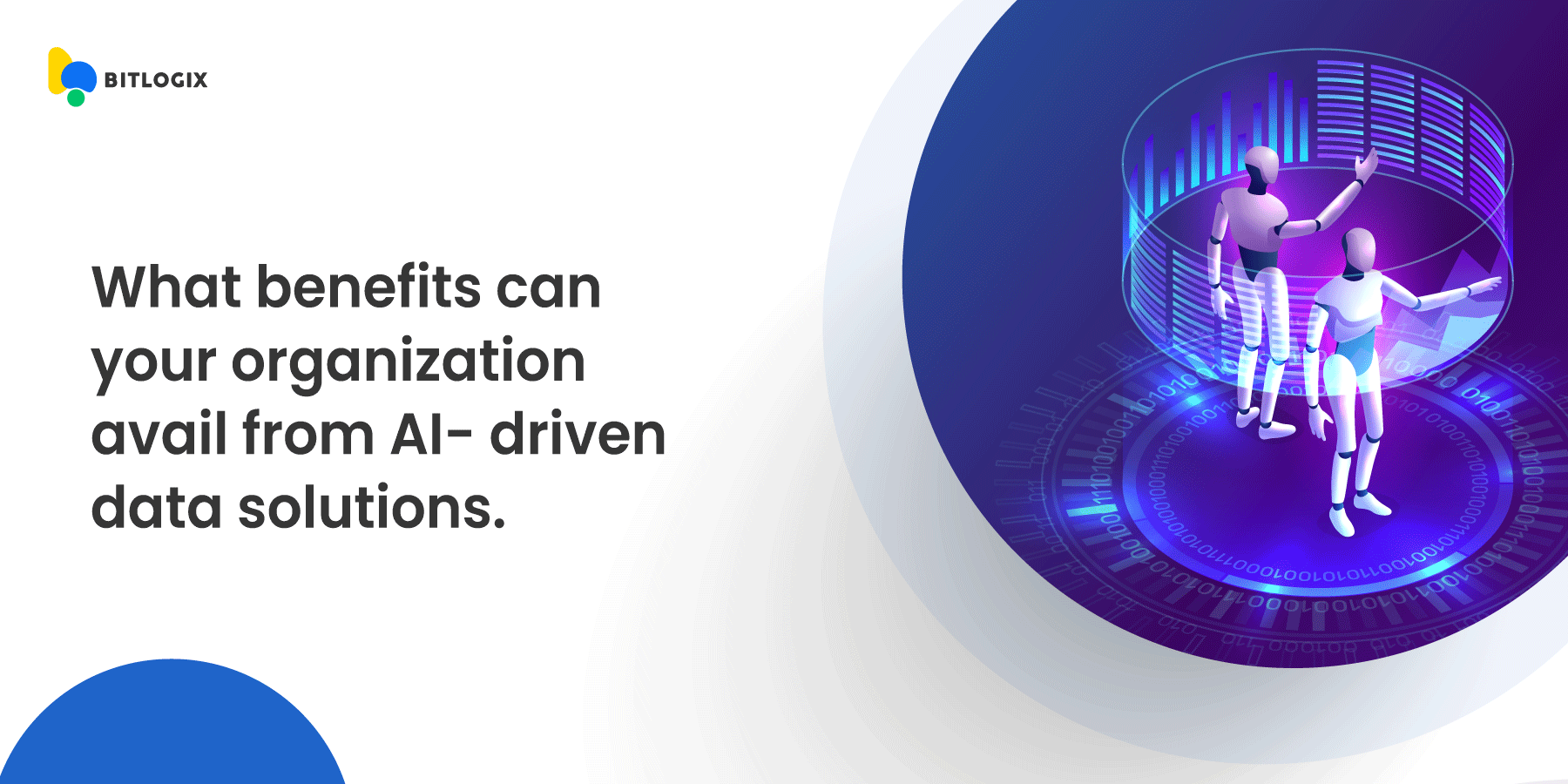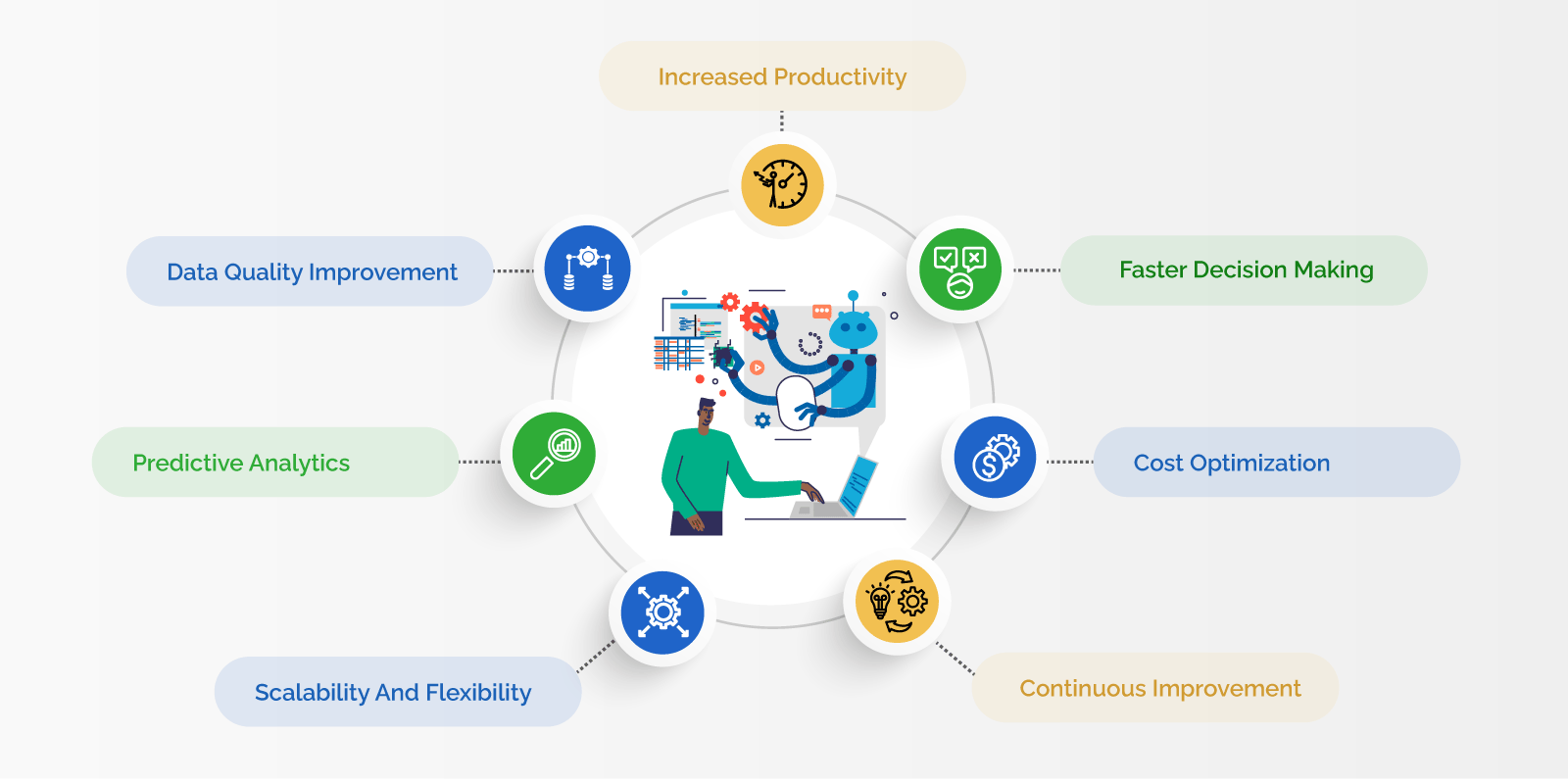
According to the reports of “Data and AI leadership executive survey” 92.1% of companies said they are achieving returns on their data and AI investments, which is a huge landmark as compared to 48.1% in 2017. 91.7% said they were increasing investments in data and AI, equaling last year’s percentage. 26.0% of companies have already implemented AI systems in widespread production—more than double the 12.1% last year.
Data is refined, prepared, orchestrated, and ingested in a business in different ways. According to the reports of market data forecasts, the global data engineering market is likely to expand from 39.50 billion in 2020 to 87.37 billion in 2025 with a growth rate of 17.6%.
By 2025, the data generated each day is expected to reach 463 exabytes globally, the increasing reliance on data, the market size of data, and its effectiveness in the growth of businesses are increasing the demand for automation in data solutions.
AI adoption is speeding up in every industry. In particular, AI-driven solutions improve the process of data management, analytics, decision-making, and operational optimization and empower intelligent document processing.
Read the blog to learn how AI-driven data solutions are transforming the way organizations consolidate, process, and utilize their data, and ultimately, what benefits they are having.
Benefits Of Increasing Growth Of Artificial Intelligence In Data
 The future of data engineering is all about embracing new technologies and trends. Artificial intelligence (AI) and machine learning (ML) technologies are the ones revolutionizing various industries, bringing automation to various business processes, enabling businesses to analyze vast amounts of data, gain valuable insights and make smart business decisions.
The future of data engineering is all about embracing new technologies and trends. Artificial intelligence (AI) and machine learning (ML) technologies are the ones revolutionizing various industries, bringing automation to various business processes, enabling businesses to analyze vast amounts of data, gain valuable insights and make smart business decisions.
The most recent and remarkable development of AI OpenAI/ChatGPT is creating buzz and accelerating the journey of AI implementation in every aspect of an organization.
Similarly, AI is making a huge impact on data engineering. Eventually, organizations can have various benefits from this development.
Increased Productivity
Recent research by PwC on automating analytics found that AI-based extraction techniques can save businesses 30–40% of the hours typically spent on such processes.
According to Gartner reports AI has the potential to eliminate 80% of today’s manual project management tasks by 2030. This research highlighted the effective role of AI in improving the productivity of an organization.
In the data handling process, AI can automate various phases where employees invest most of their time. The whole data cleaning process goes through a lot of phases to reach the refined point and take decisions. Most of the time, data takes the following steps where AI can prove to be a game change and improve the productivity of the organization.
- Automated Data Integration
- Data Cleaning and Preprocessing
- Data Transformation and Enrichment
- Optimizing data pipelines
- Automated error detection and monitoring
- Auto-scaling and resource management
- Data security and governance
Data Quality Improvement:
AI/ML models prove to be very helpful in detecting and rectifying data inconsistencies, anomalies, and missing values. These algorithms and models improve data quality, which helps organizations make better-informed decisions based on accurate and reliable information.
- A study by Gartner found that 60% of organizations are using AI to improve data quality.
- The same study found that organizations that use AI to improve data quality are 2.5 times more likely to achieve their business goals.
- A study by McKinsey found that AI can help organizations reduce data errors by up to 70%.
Faster Decision Making
With the advent of the latest technologies, companies have started taking smarter decisions. AI algorithms in data engineering are designed to extract useful information and draw useful insights that help in making smart and faster decisions. These algorithms are not only effective in extracting useful insights but also help businesses in improving the speed, accuracy, effectiveness, and consistency of their decision-making processes.
Moreover, AI-based tools help business leaders prioritize tasks and make decisions based on the priority of each phase.
Predictive Analytics:
AI and ML models anticipate the latest trends, patterns, and forecasts in data that can affect the results and decision-making process in the long run. Based on these trends, AI enables the organization in predictive analysis. These anticipated trends and patterns prove to be very helpful in empowering businesses to take proactive actions and stay ahead in the competition.
Moreover, AI-driven data solutions detect anomalies and data patterns that can impact the overall results. Predictive analytics plays a huge role in the healthcare, finance, and retail industries. Where any change in data and patterns can affect the results quickly.
Cost Optimization:
AI/ML integration optimizes data engineering workflows, reducing operational costs and the need for extensive manual labor. This efficiency translates into higher productivity and resource utilization.
- AI is expected to grow to a $309 billion industry by 2026 and 44% of executives report decreased operational costs as a direct result of implementing AI.
- A study by McKinsey found that AI can help organizations save up to $100 million per year in data-related costs.
Scalability And Flexibility:
Deploying augmented intelligence in document audits can revolutionize data processing. AI/ML algorithms can deal with large volumes of data efficiently. By integrating these technologies, data engineering processes become scalable and adaptable to changing business needs.
By utilizing machine learning algorithms, the AI tool quickly extracts information from PDFs, identifies vital data, and connects related documents. This approach can save a mid-sized company up to 2,000 hours for every 100,000 pages processed, translating to significant cost and time savings.
Continuous Improvement:
Maintaining the quality of the data demands staying connected and informed with the evolving trends, patterns, and forecasts in the data. Machine Learning models can be continuously trained and refined to adapt to evolving data patterns, ensuring that data engineering processes remain accurate and effective over time.
Bottom Line
In conclusion, the seamless integration of AI/ML capabilities into data engineering opens up a wide array of advantages for organizations. By harnessing this powerful synergy, companies can fully tap into the potential of their data, enabling them to make informed, data-driven decisions and gain a significant competitive advantage in today’s data-centric business landscape.
For those seeking the best data engineering services, BITLogix stands out as a reliable and trusted partner. Our team of experts is dedicated to tailoring solutions that precisely align with your unique requirements, ensuring that you achieve optimal results from your data initiatives. With BITLogix by your side, you can confidently embark on a transformative journey toward achieving the true value of your data.